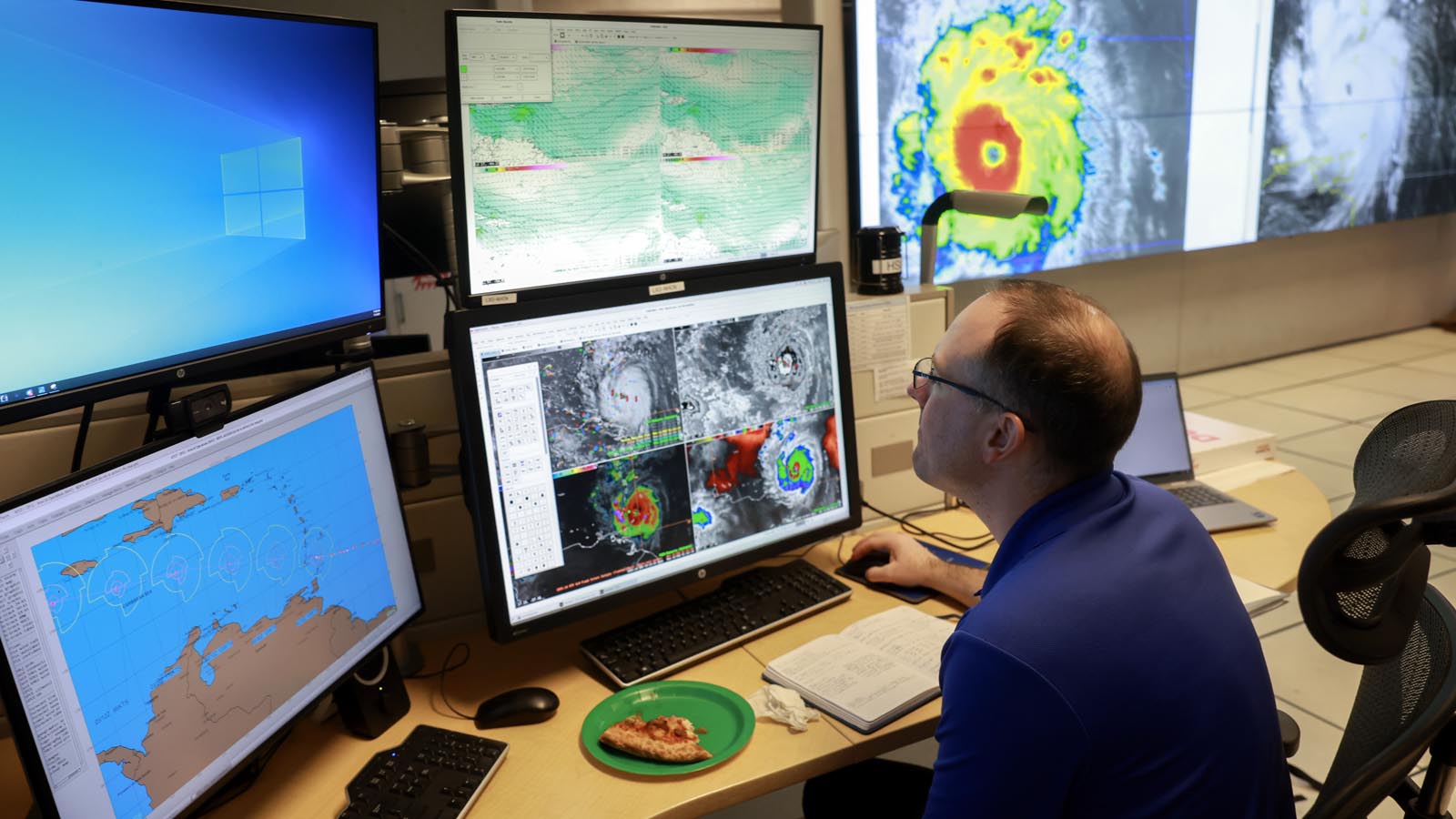Understanding Hurricane Model Accuracy For The 2025 Season

Welcome to your ultimate source for breaking news, trending updates, and in-depth stories from around the world. Whether it's politics, technology, entertainment, sports, or lifestyle, we bring you real-time updates that keep you informed and ahead of the curve.
Our team works tirelessly to ensure you never miss a moment. From the latest developments in global events to the most talked-about topics on social media, our news platform is designed to deliver accurate and timely information, all in one place.
Stay in the know and join thousands of readers who trust us for reliable, up-to-date content. Explore our expertly curated articles and dive deeper into the stories that matter to you. Visit Best Website now and be part of the conversation. Don't miss out on the headlines that shape our world!
Table of Contents
Understanding Hurricane Model Accuracy for the 2025 Season
The 2025 Atlantic hurricane season is looming, and with it, the familiar anxiety surrounding potential storms. While sophisticated hurricane models offer invaluable predictions, understanding their limitations is crucial for effective preparedness. This article delves into the accuracy of hurricane models, examining their strengths and weaknesses to help you better interpret forecasts and prepare for the upcoming season.
The Science Behind Hurricane Prediction
Predicting hurricanes isn't an exact science. Meteorologists utilize complex computer models, incorporating vast amounts of data including atmospheric pressure, temperature, wind shear, and ocean surface temperatures. These models, like the Global Forecast System (GFS) and the Hurricane Weather Research and Forecasting (HWRF) model, simulate the atmosphere's behavior, projecting a hurricane's likely path and intensity. However, the chaotic nature of atmospheric systems introduces inherent uncertainties.
Factors Affecting Model Accuracy:
Several factors significantly impact the accuracy of hurricane predictions, particularly in the longer-range forecasts (5+ days):
- Initial Conditions: Slight variations in the initial data input can lead to vastly different model outcomes. The more accurate the initial data (gathered from satellites, weather buoys, and aircraft reconnaissance), the better the prediction.
- Model Resolution: Higher-resolution models, using finer grids, can better capture smaller-scale atmospheric features influencing hurricane development and track. However, higher resolution also requires greater computing power and time.
- Model Physics: The physical equations and algorithms within the models constantly undergo refinement. Improvements in our understanding of atmospheric processes lead to more accurate simulations, but imperfections remain.
- Unpredictable Factors: Unforeseen factors like unexpected changes in wind shear, interaction with other weather systems, or the unexpectedly warm or cool ocean temperatures can significantly affect a hurricane's path and intensity, making long-range predictions challenging.
Interpreting Hurricane Forecasts:
Understanding the "cone of uncertainty" is crucial. This cone isn't a prediction of the hurricane's size, but rather the range of possible paths the storm's center might take. The cone's width reflects the increasing uncertainty over time. Even within the cone, the hurricane's intensity can vary significantly.
Focus on the entire forecast, not just the projected path. Pay attention to the predicted wind speeds, storm surge potential, and rainfall amounts. These factors are equally crucial in determining the potential impact of a hurricane.
Improvements in Hurricane Modeling:
Significant advancements in hurricane forecasting have been made in recent years. Improved satellite technology, denser observational networks, and enhanced computing power continuously improve model accuracy. Researchers are also exploring the use of artificial intelligence (AI) and machine learning to further refine prediction capabilities. For example, [link to a relevant scientific article on AI in hurricane forecasting].
Preparing for the 2025 Hurricane Season:
Regardless of model accuracy, preparation is key. Develop a hurricane preparedness plan, including evacuation routes, emergency supplies, and communication strategies. Stay updated on the latest forecasts from reputable sources like the National Hurricane Center (NHC) – [link to NHC website] – and your local weather office. Remember that hurricane models provide valuable guidance, but they are not perfect. Prioritize preparedness and heed all official warnings.
Conclusion:
While hurricane models provide increasingly accurate predictions, understanding their limitations is vital. By considering the factors affecting model accuracy and interpreting forecasts responsibly, individuals and communities can better prepare for the 2025 hurricane season. Remember, preparedness is your best defense against the unpredictable power of nature. Stay informed, stay safe.

Thank you for visiting our website, your trusted source for the latest updates and in-depth coverage on Understanding Hurricane Model Accuracy For The 2025 Season. We're committed to keeping you informed with timely and accurate information to meet your curiosity and needs.
If you have any questions, suggestions, or feedback, we'd love to hear from you. Your insights are valuable to us and help us improve to serve you better. Feel free to reach out through our contact page.
Don't forget to bookmark our website and check back regularly for the latest headlines and trending topics. See you next time, and thank you for being part of our growing community!
Featured Posts
-
 Protecting Yourself From The Latest Georgia Driving Ticket Scam
May 29, 2025
Protecting Yourself From The Latest Georgia Driving Ticket Scam
May 29, 2025 -
 Understanding The Threat The Screwworm Fly And Its Impact On Agriculture
May 29, 2025
Understanding The Threat The Screwworm Fly And Its Impact On Agriculture
May 29, 2025 -
 Choosing The Best Hurricane Prediction Models In 2025
May 29, 2025
Choosing The Best Hurricane Prediction Models In 2025
May 29, 2025 -
 Trump Considers Stronger Sanctions As Putins Actions Elicit Ire
May 29, 2025
Trump Considers Stronger Sanctions As Putins Actions Elicit Ire
May 29, 2025 -
 Jerusalems Flashpoint Ultra Nationalist March Ignites Fresh Violence
May 29, 2025
Jerusalems Flashpoint Ultra Nationalist March Ignites Fresh Violence
May 29, 2025
Latest Posts
-
 Tsmc Q2 Profit Jumps 61 Exceeding Expectations Amidst Robust Ai Chip Demand
Jul 17, 2025
Tsmc Q2 Profit Jumps 61 Exceeding Expectations Amidst Robust Ai Chip Demand
Jul 17, 2025 -
 Nvidias Ai Chip Sales To China A Reversal Of Us Export Controls
Jul 17, 2025
Nvidias Ai Chip Sales To China A Reversal Of Us Export Controls
Jul 17, 2025 -
 Love Island Usas Amaya And Bryan Post Show Relationship Update
Jul 17, 2025
Love Island Usas Amaya And Bryan Post Show Relationship Update
Jul 17, 2025 -
 Ynw Melly Double Murder Case Retrial Set For September Following Mistrial
Jul 17, 2025
Ynw Melly Double Murder Case Retrial Set For September Following Mistrial
Jul 17, 2025 -
 De Chambeau Explains Why Public Courses Present Unexpected Challenges
Jul 17, 2025
De Chambeau Explains Why Public Courses Present Unexpected Challenges
Jul 17, 2025
